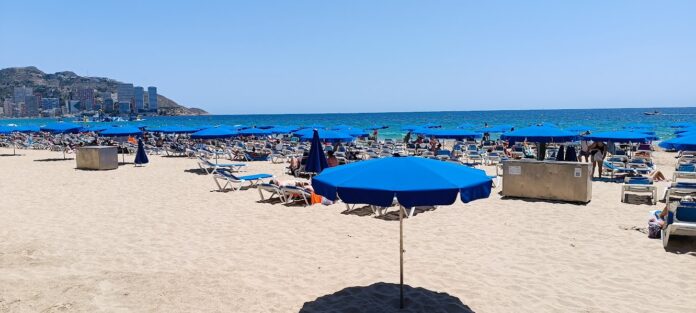The tourism sector in the Valencian Community has broken records for visitors this summer. The city of Valencia alone has recorded its best figures ever for a month of July, with almost 200,000 tourists and more than 483,000 overnight stays in hotels thanks to the rise in foreign visitors. Tourist apartments have also achieved reservations that reached 97% in areas, thus reigniting the debate on the suitability of implementing a tourist tax in the Valencian region as other regions of Spain and many European cities have, as a way of compensating for the wear and tear on public services resulting from visits or with the aim of reinvesting it in the sector.
Since June, it was already clear that this summer could be historic in terms of tourism. Alicante and its coast have been positioned among the preferred destinations for nationals and foreigners for years. Added to this are recent publications in magazines and digital portals, such as Forbes, which place Valencia as the ‘best city to live or retire in’. Castellón has also experienced strong growth thanks to the popularity of certain municipalities or the ‘discovery’ of others through social networks, generating a call effect. So much so that already in the sixth month of the year, Valencian airfields received thousands of tourists, predicting what was to come in the busiest months of the summer season.
These figures once again raise the possibility of imposing a tax that has never been implemented in the Valencian region. The previous Regional Government led by the PSOE approved this tax in 2022 but included a one-year moratorium on its application. However, before the deadline was met, the new PP government of Carlos Mazón made good on its electoral promise to repeal it and, therefore, it was never activated.
The reason the PP took the action was because they said they wanted to support the hotel and hospitality businesses, who had complained that the tax would damage their business, despite them themselves increases both prices and profits by way more than the small contributions the tax would have taken, and has not damaged other areas where it has existed for years.
However, in view of the current situation, and with a certain social weariness on issues related to tourism such as illegal flats, this issue resurfaces again. And this under the idea of defraying the expenses generated by the mass tourism in the cities. The mayor of Buñol, famous for tourism-centric events like the Tomatina, Virgina Sanz, despite the fact that it was her party, the PP, that was in charge of removing the planned tax, spoke out a few days ago in favour of the possibility that each municipality could have room to implement it, for example to contribute to the control of capacity as occurs with La Tomatina and to alleviate the expenses that the council must bear.
A line of discourse that is not too far from that approved by Compromís, PSPV and Unides Podem. This Wednesday, the spokesperson for the Valencian coalition in Les Corts, Joan Baldoví, considered that it is a ” very reasonable proposal that is applied in a generalised way in Europe”.
If there are around 54 million overnight stays in the Community in 2024, “at two euro of tourist tax, that would be 109 million euro that could be distributed in towns and cities.” “It would mean being able to hire 2,000 doctors, provide rental assistance to 5,000 more beneficiaries or have 2,500 more teachers in our educational system,” Baldoví points out.
Whilst many of the hoteliers are profiteering from the price increases, whilst denying public funding to satisfy their greed, a concept supported by the PP government, the truth is that there are several European cities that already charge for stays in their territories. Specifically, a fee is paid in 137 European cities in 20 countries. Spain is one of them, since the Balearic Islands and Catalonia already have it active. In other places such as Seville or the Basque Country, it is under debate.
In neighbouring Portugal, cities such as Porto and Faro already have it, as well as 35 Italian cities such as Rome and Venice; and another 50 in France. Generally, it is a fee that taxes overnight stays and ranges from one cent to five euros, although there is the case of Amsterdam, where the rate per night and visitor reaches 20 euros, the most expensive in Europe.
In Germany, for example, cities such as Berlin and Hamburg have a “bed tax” that is usually around 5% of the accommodation bill. There are also other destinations that apply some type of tax, such as Vienna in Austria; Brussels, Antwerp and Bruges in Belgium; Prague in the Czech Republic, Budapest in Hungary. It also exists in cities in Bulgaria and Greece. None of which have ever seen a decline in tourism as a result.





